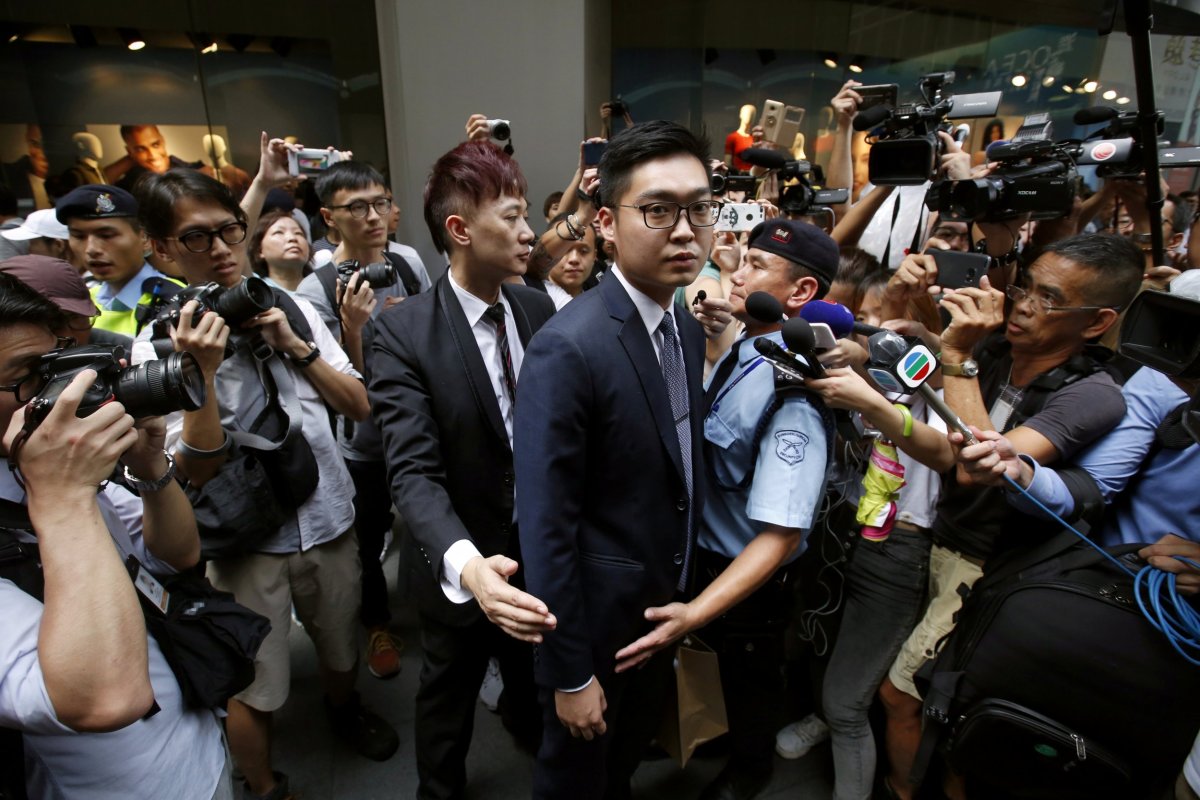Hong Kong authorities officially banned a small pro-independence political party on Monday—an unprecedented move that has caused outcry among critics who view the measure as another example of China's creeping influence.
In a statement published in the government gazette, John Lee, Hong Kong's secretary for security, announced that the decision was made on the basis of national security under Hong Kong's Societies Ordinance.
"The Hong Kong National Party has a very clear agenda: to achieve its goal of Hong Kong being made an independent republic. Over the two years, it has planned and executed actions to implement the plan," Lee said on Monday.
"I cannot ignore the fact that the Hong Kong National Party has repeatedly advocated that it will use all methods, including the use of force, and also encouraging its supporters to use force.
"[The move is] in the interest of national security, public safety, public order and the protection of rights and freedoms of others," Lee continued, noting that the party had encouraged "hatred and discrimination" among its citizens toward mainland China.
According to the notice, members of the Hong Kong National Party, a group that advocates for independence from China, are now breaching the law and could face up to three years in prison and fines not exceeding $12,000. It is also illegal to act on behalf of the party or to raise funds for it.
The Societies Ordinance is a colonial-era law that gives the government power to ban groups "in the interests of national security, public order or the protection of the rights and freedoms of others."

In July, the Hong Kong government revealed it was considering banning the party for posing an "imminent threat to national security."
Since then, Andy Chan, leader of the Hong Kong National Party, has spoken out about China's creeping influence in several public appearances. In August, he delivered a speech at the Foreign Correspondents' Club in which he said, "We were once colonized by the Brits, and now we are colonized by the Chinese. Where is our right to determine our own future?"
China's central government expressed "resolute support" for the ban on Monday and reiterated its zero tolerance policy toward anyone who sought to split the country or encourage Hong Kong's independence, according to Xinhua News Agency.
Hong Kong was returned to China by the British in 1997. Although Beijing touted a "one country, two systems" agreement which would allow the territory a degree of self-governance, human rights groups claimed that the pro–independence party ban eroded Hong Kong's individual freedoms.
"The banning of the Hong Kong National Party is a milestone in the Beijing and Hong Kong governments' assault on Hong Kong's freedoms," said Maya Wang, a senior researcher for Human Rights Watch, reported The New York Times.
"The ban violates a range of human rights guaranteed to Hong Kong people, including the rights to freedom of association and assembly."
Uncommon Knowledge
Newsweek is committed to challenging conventional wisdom and finding connections in the search for common ground.
Newsweek is committed to challenging conventional wisdom and finding connections in the search for common ground.
About the writer
To read how Newsweek uses AI as a newsroom tool, Click here.








